Aukey 4+1 port usb PA-T1
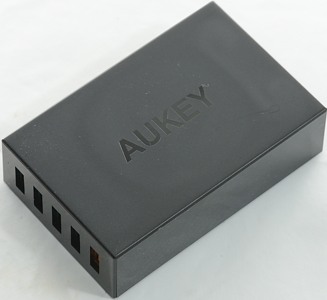
Official specifications:
- Model: PA-T1
- Input: AC 100-240V
- Output usb: 5V/7.2A
- Output QC: 5V/2A, 9V/2A ,12V/1.5A
- Dimensions: 3.7 x 2.36 x 0.98 inches (9.4 x 6 x 2.5 cm)
I got it from Amazon dealer AukeyDirect
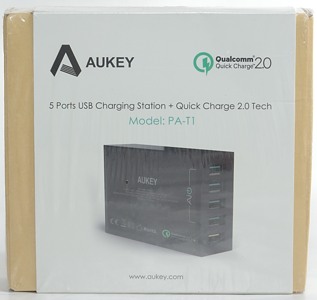
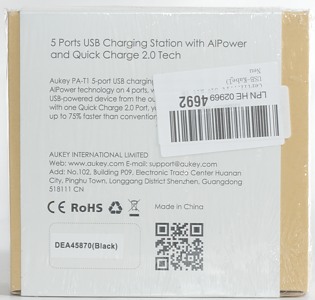
I got this charger in a cardboard retail box.
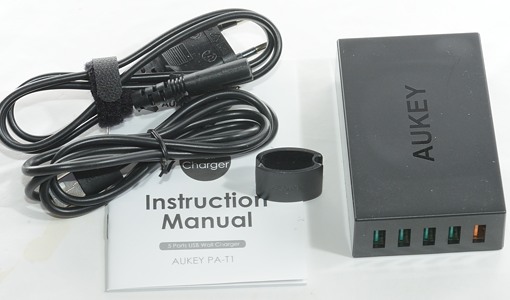
The box contained the charger, a usb cable, a power cable and a manual.
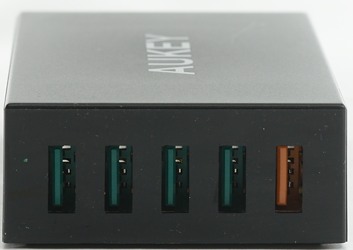
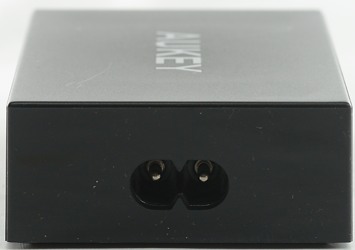
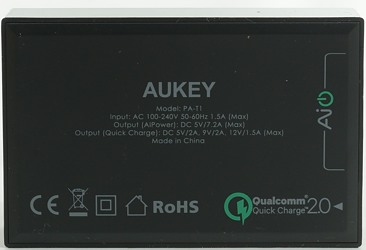
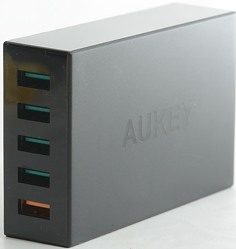
Measurements
- Power consumption when idle is 0.4 watt
- All outputs are in parallel.
- All USB outputs have automatic coding with Apple 2.5A as maximum.
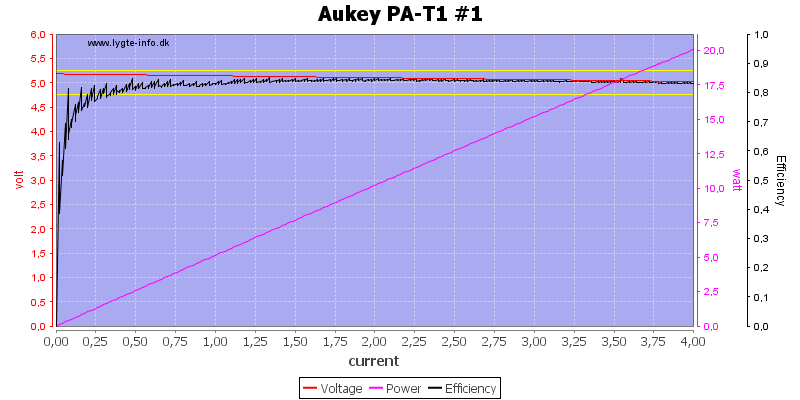
There is no individual overload protection on the ports, they can deliver lots of current.
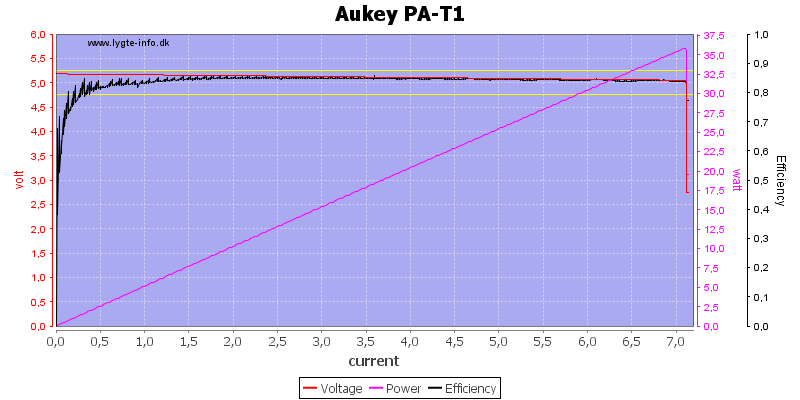
Running all four port in parallel I found the overload protection a bit above 7A. With the charger rated for 7.2A, this is very close to the rating.
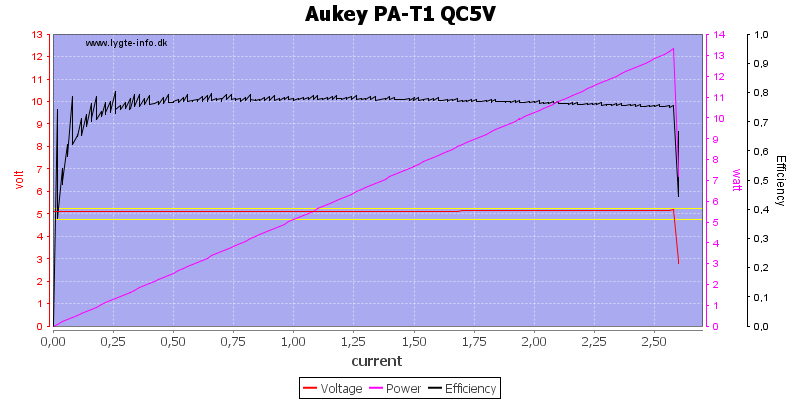
With QuickCharge at 5 volt the current limit is about 2.6A on that output.
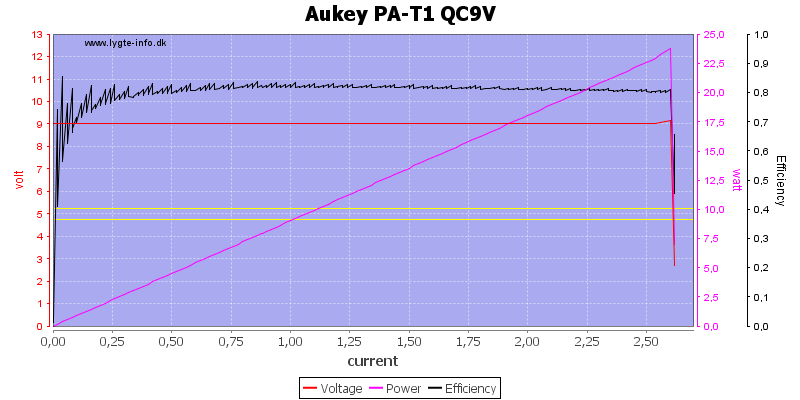
And the same at 9V
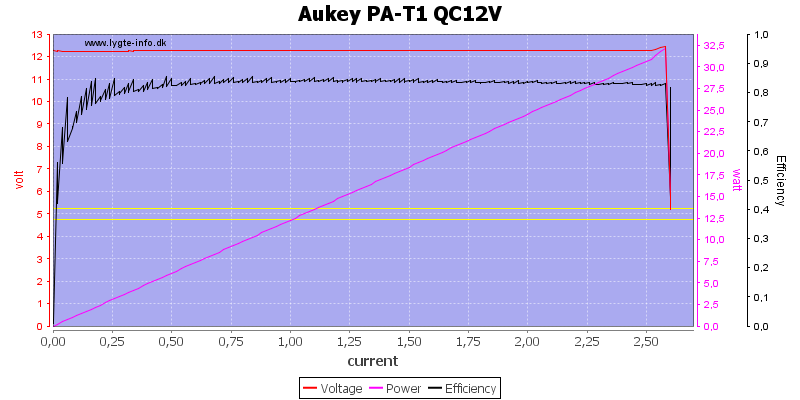
And at 12V (It is only rated for 1.5A).
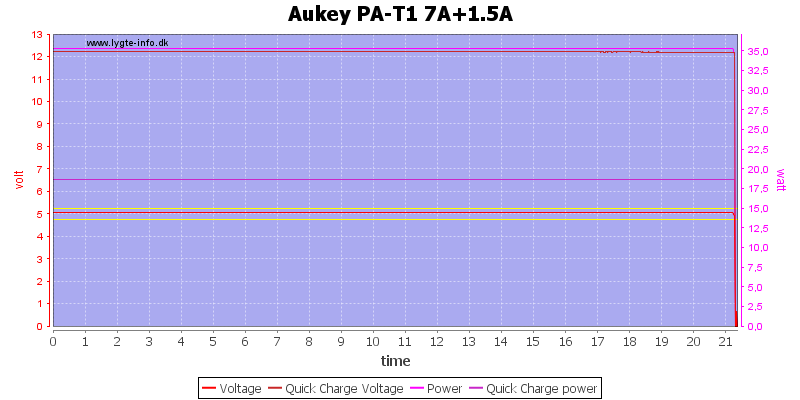
How well do it handle max load? I loaded with 7A on usb output and 1.5A on 12V QuickCharge, the usb charger could only maintain that output for 21 minutes before it shut down.
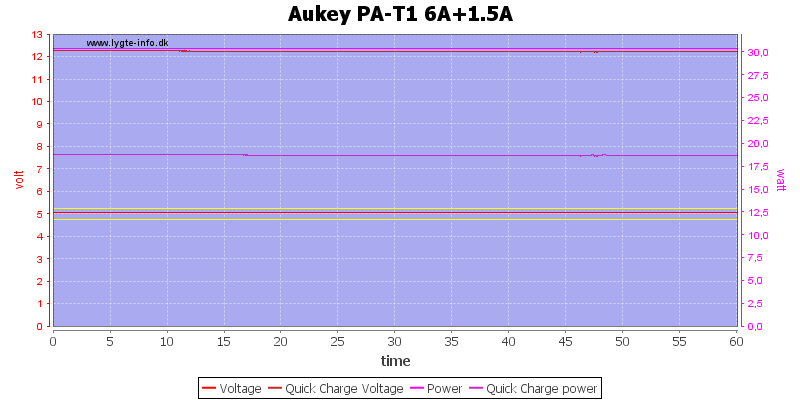
Reducing the usb load to 6A was better, now I could do the full one hour test.
The temperature photos below are taken between 30 minutes and 60 minutes into the one hour test.
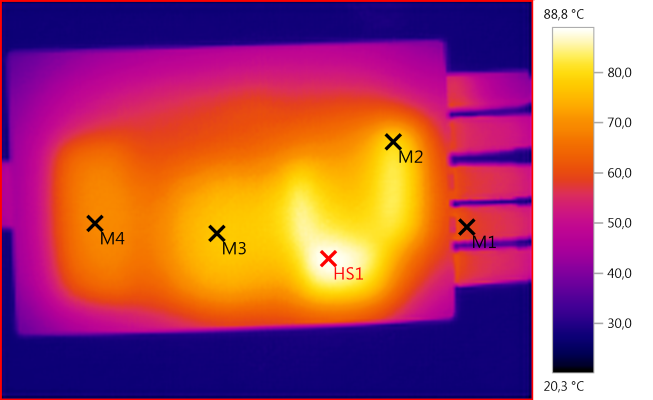
M1: 59,4°C, M2: 78,8°C, M3: 77,1°C, M4: 68,9°C, HS1: 88,8°C
HS1 is the two rectifier diodes, it is no wonder they get very hot.
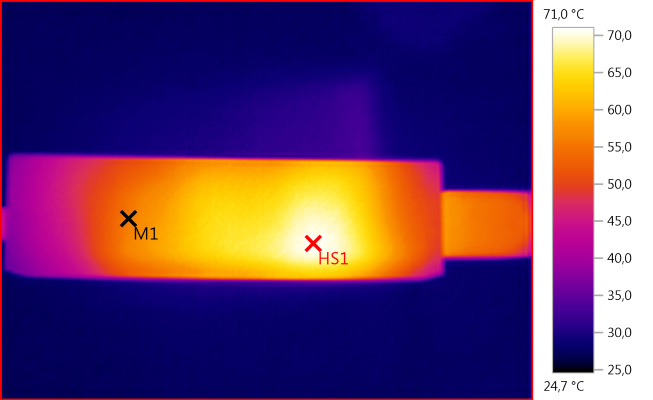
M1: 55,8°C, HS1: 71,0°C
HS1 is the QC rectifier diode (D4).
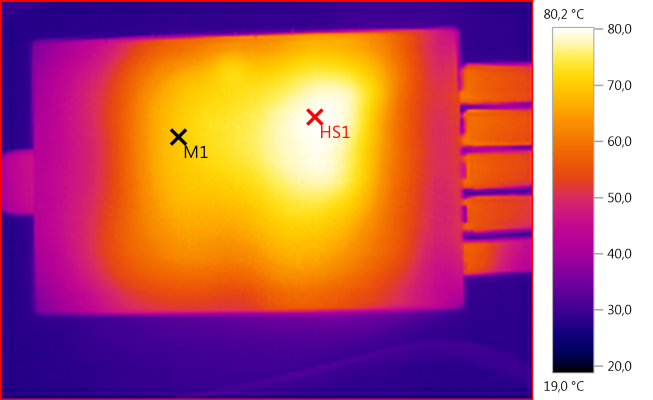
M1: 69,9°C, HS1: 80,2°C
HS1 is again the rectifier diodes.
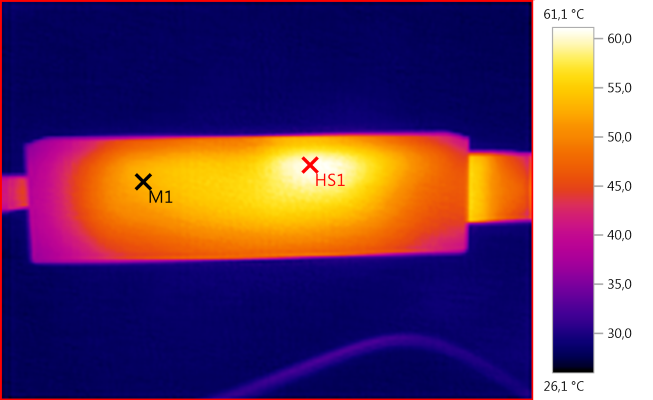
M1: 53,1°C, HS1: 61,1°C
HS1 is the heatsink for the rectifier diodes.
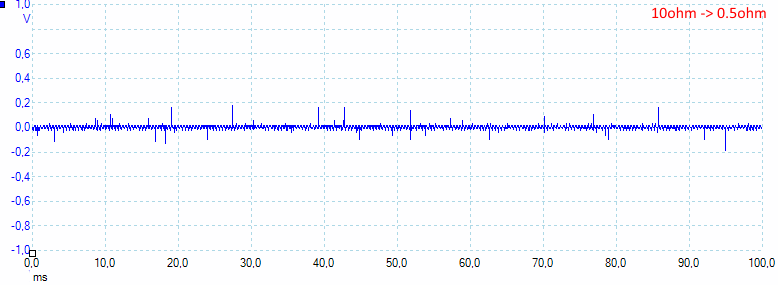
Generally the average noise level is low, but there are some spikes: 15mV rms and 520mVpp
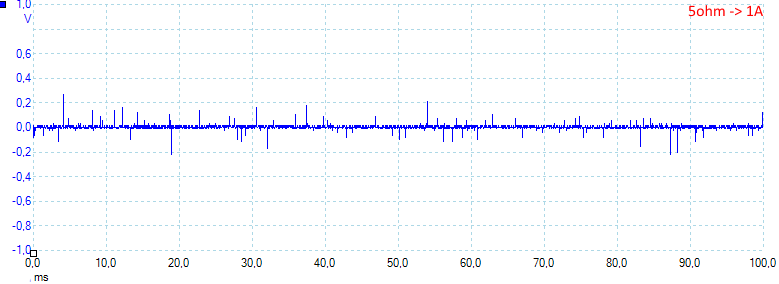
Same here: 14mV rms and 560mVpp
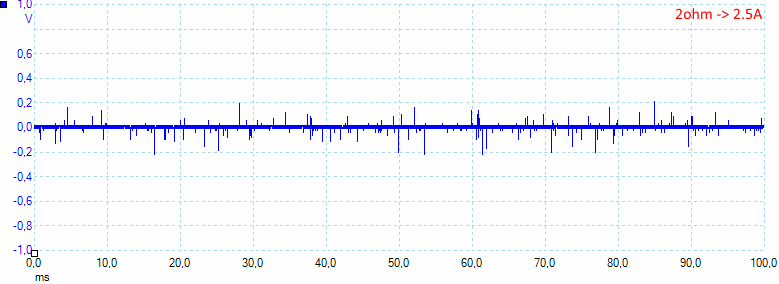
And here: 20mV rms and 680mVpp
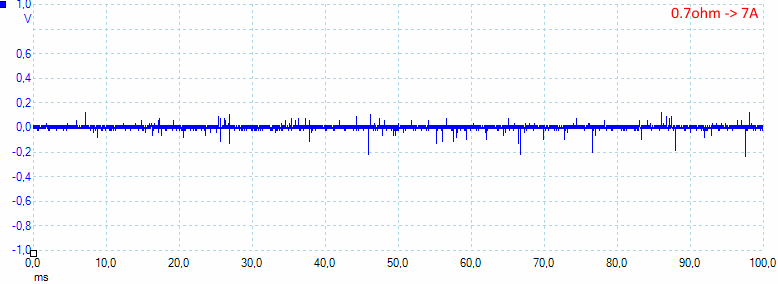
Full usb load: 16mV rms and 480mVpp
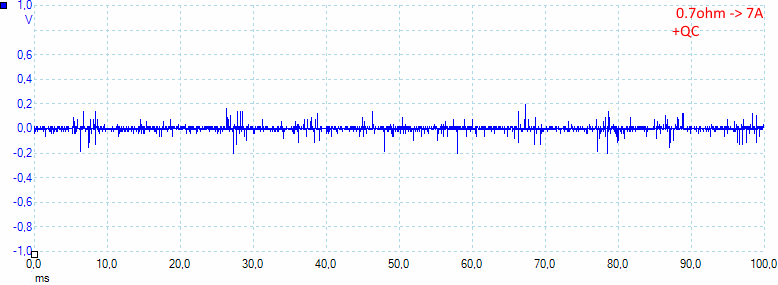
Full usb load and QC load: 20mV rms and 540mVpp
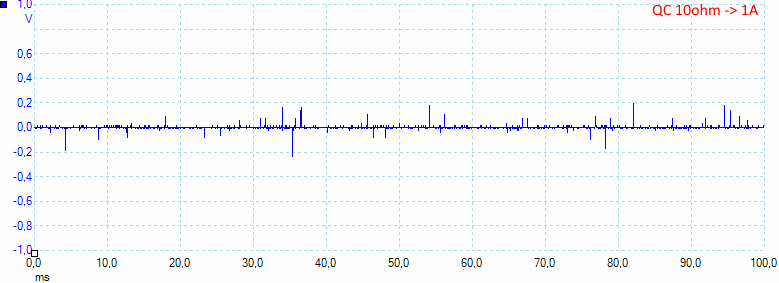
QuickCharge has the same problem: 13mV rms and 710mVpp
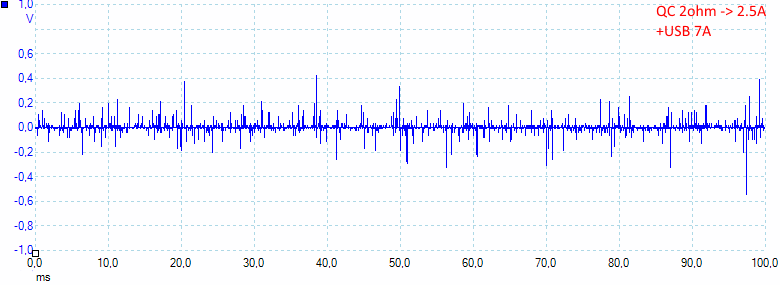
Full load with QC at 5 volt: 32mV rms and 1260mVpp
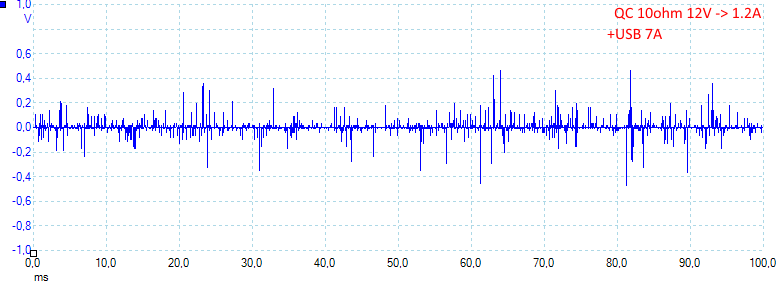
Full load with QC at 12 volt: 34mV rms and 1280mVpp
Tear down
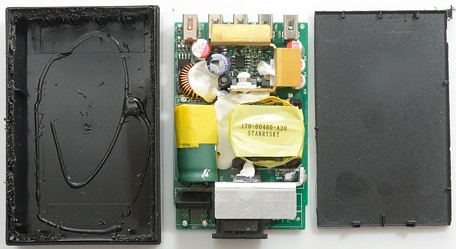
This charge had to be cut open.
Having both normal usb and a QuickCharge output, the charger needs two switching circuits.
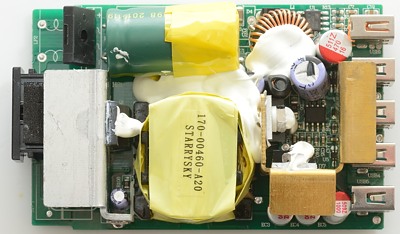
The first that is obvious are the missing common mode coils (LF2), other filter components and fuse. There is a bridge rectifier, a mains switcher transistor on a heatsink. Hidden in the white stuff is a safety capacitor. On the low volt side there is two rectifier diodes (on is hidden) and a transistor on heatsinks. The toroidal inductor must be part of the QC switcher, just besides that inductor is a filter inductor.
The U1 chips are a CHY100D QC controller. Under the inductor are the QC rectifier diode and the QC switcher controller (EUP3466A). There is also a LM358 used for current limiting.
Just behind the usb connectors, below the heatsink are two chips for handling automatic coding of the usb outputs.
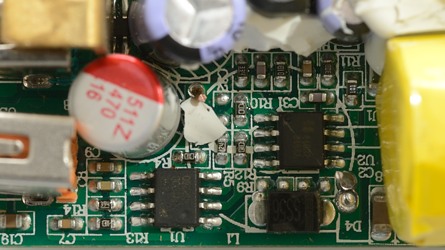
A better look under the inductor.
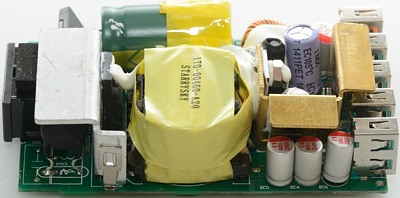
The inrush current limiter can be seen (NCT1) close to the mains connector, under the heatsink behind the usb connectors is one of the rectifier diodes hidden.
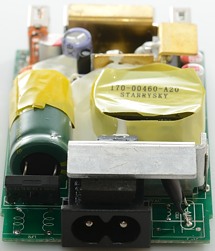
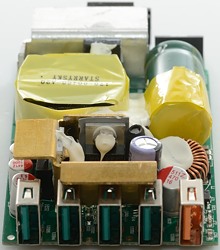
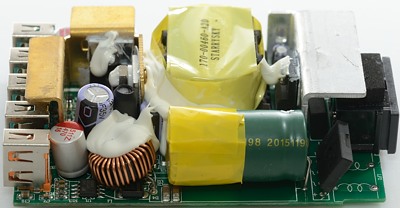
Here the QC circuit can be seen.
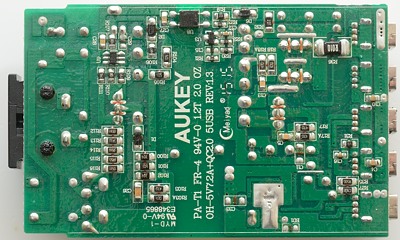
On the bottom side is the mains switcher controller (U9), the opto feedback (U8) and the controller for the opto feedback (U3). The R010 (R36) must be used to detect and limit usb current and R27+R35 must be used to detect and limit QC current.
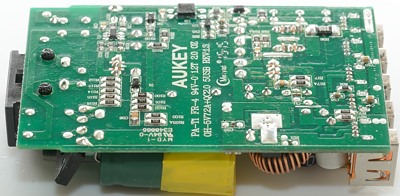
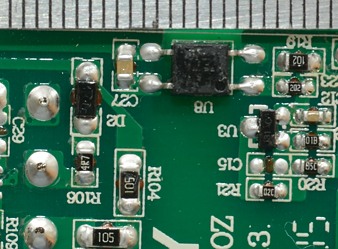
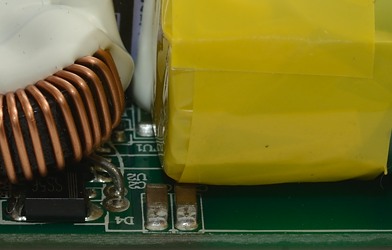
The isolation distance looks to be fine, but the yellow tape isolation on the capacitor do not look very professional.
Testing with 2500 volt and 5000 volt between mains and low volt side, did not show any safety problems.
Conclusion
The charger works and is safe, but I do not like all the peak noise and it looks like it is best to use it below full load.
Notes
Index of all tested USB power supplies/chargers
Read more about how I test USB power supplies/charger





































